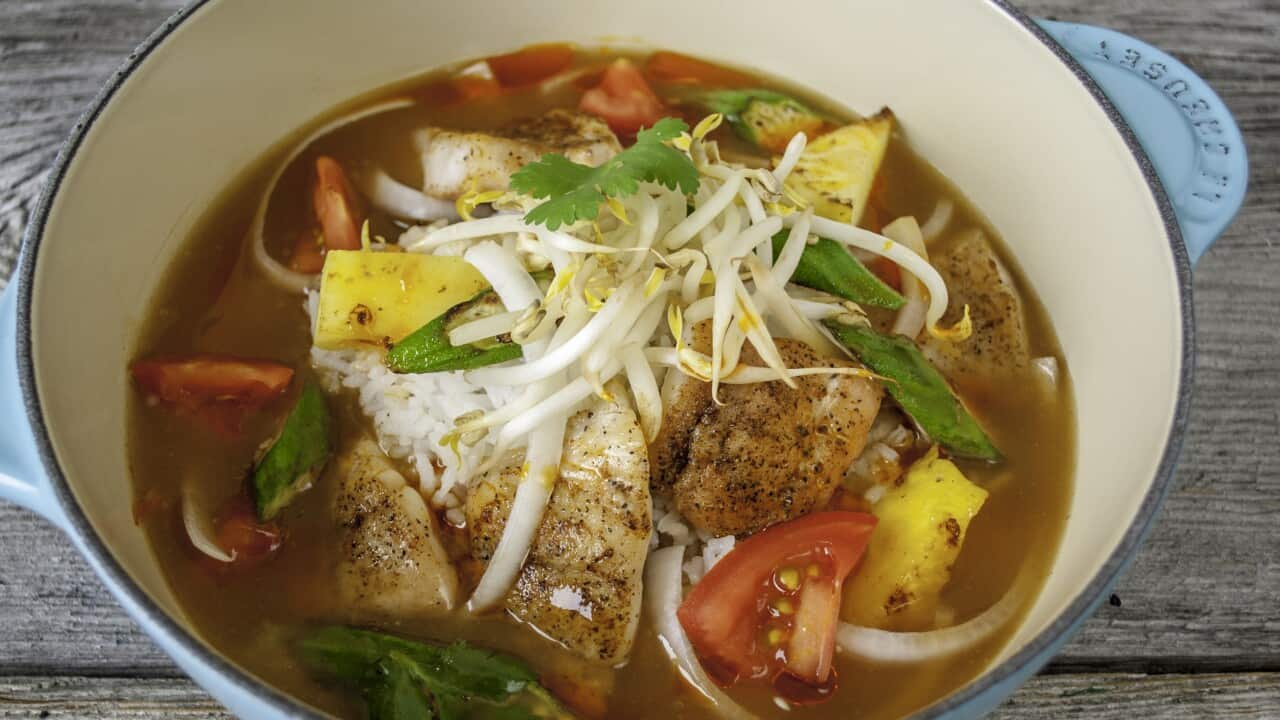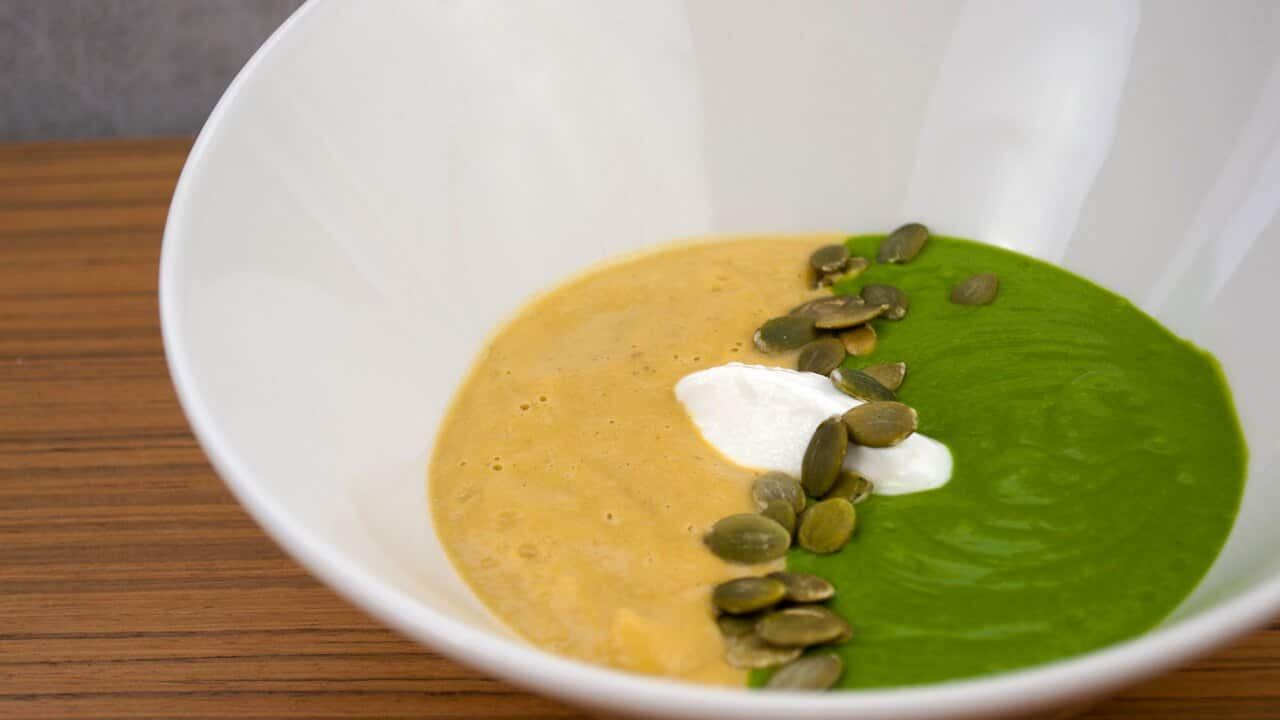Family recipes for traditional homemade broths hailing from Europe, North Africa and the Middle East may be more robust than we realise, with a new study finding that some soup broths may have antimalarial properties.
The first study of its kind was published in the BMJ journal, Archives of Disease in Childhood this week. It sheds light on the medicinal potential of traditional clear soups, finding that some homemade vegetable and meat broths may be able to interrupt the life cycle of the most deadly of the malarial parasites, Plasmodium falciparum. Within this study 'traditional broths' are referencing recipes that were passed down through the family to their children.
The research discovered that five of 56 traditional vegetarian, chicken or beef-based soups, which were passed down through the generations in Europe, North Africa and the Middle East for the treatment of fever, were able to curb the growth of the immature malaria parasite by more than 50 per cent.
The recipes were varied and there was no particular ingredient common to all the broths with the strongest antimalarial activity.
It’s always interesting when a nutritious food can be considered for their potential use as a medicine.
Lisa Renn, Accredited Practising Dietitian tells SBS even though a lot more research is needed to identify the components of the broths that worked to inhibit the common malaria parasite, the study is of great value to travellers and local communities in countries where the infection is common.
“It’s always interesting when a nutritious food can be considered for its potential use as a medicine,” explains Renn, spokesperson for the Dietitians Association of Australia.
“If these traditional broths are made and sourced from food components that are often available in the countries where [malaria is prevalent], then that would bring a potential ‘medicine’ closer to the people who may need it. So the research is certainly exciting, especially for population groups who are vulnerable to developing malaria.”
If these traditional broths are made and sourced from food components that are often available in the countries where [malaria is prevalent], then that would bring a potential ‘medicine’ closer to the people who may need it.
How the study used school children and their family broth recipes
The overall aim of the research was to uncover if there are alternate ways to combat malaria, given that half of the world’s population is currently at risk from the infection and resistance to the drugs used to treat the malaria parasite continues to emerge.
The researchers took inspiration from the development of the antimalarial drug artemesin, which originates from the qinghao – a herb that’s usually served as a tea and used in traditional Chinese herbal medicine to treat fever. They wanted to see if other ‘natural’ remedies might also have antimalarial properties.
“Like the use of qinghao, many traditional cultures prescribe a hot broth for treating fever, each having ascribed miraculous powers of healing, for example, Jewish grandmothers’ chicken soup,” the study's authors write.
“Indeed, there is some evidence that these broths do indeed contain antibiotic properties.”
So the scientists, led by an Imperial College London UK researcher, sought to test clear soups of various cultural backgrounds in the lab to see if any of them had the potential to interrupt the life cycle of the malarial parasite.
Instead of buying soups to test from the supermarket or sticking to a standard publicised recipe, the researchers asked pupils at one primary school in London to bring in samples of homemade soup broths.
The study states that two of the broths produced inhibitory activity that was comparable with that of a leading antimalarial drug. Four other broths were more than 50 per cent effective at blocking maturation, so potentially stopping malarial transmission.
“This journey, mirroring that of artemisinin from the qinghao herb, may as yet reveal another source of potent anti-infective treatment,” the study reads.
People may mistakenly think they can just make a soup or broth and it will work but that is not the case – the soup they make may not have the specific compounds in it that inhibits the growth of the malaria parasite.
Renn clarifies that the study’s results do not mean that home cooks should go out and make traditional broths in the hope that they will treat serious conditions like malaria. The first point of call for treatment is still one that is medically prescribed and not based on a home remedy.
“People may mistakenly think they can just make a soup or broth and it will work but that is not the case – the soup they make may not have the specific compounds in it that inhibits the growth of the malaria parasite,” she says.
“We need to know more about the mechanism and compounds involved in the soups that worked in order to test this [new] theory on humans.”
Broths and their use in providing the sick with comfort
Beyond the potential of traditional broth to battle malaria, Renn says homemade soups are packed with health benefits.
“Generally speaking, a homemade broth usually contains protein – be it meat or legumes – which is excellent for your health. You’re also getting a lot of fluid in and consuming vegetables [if the soup has veges]. So there is merit in stating that soup is a food that assists with wellness.”
She adds that grandma’s chicken noodle soup could also provide you with a great deal of comfort when you are sick.
“Let’s not underestimate the psychological impact of comfort on a person’s ability to heal. There is so much more to learn about the mind, as well as the active ingredients of these traditional foods and how they work on our body
“Whether or not homemade soups are a cure for illness remains to be seen. But we do know that broths can certainly be part of a healthy, balanced diet.”
Share
SBS Food is a 24/7 foodie channel for all Australians, with a focus on simple, authentic and everyday food inspiration from cultures everywhere. NSW stream only. Read more about SBS Food
Have a story or comment? Contact Us










